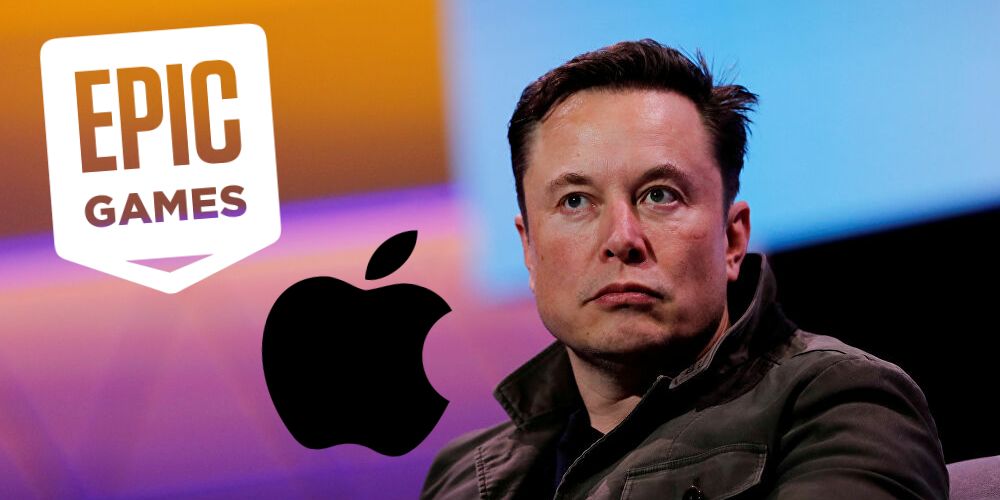
As Apple and Epic Games continue their legal battle, Elon Musk recently threw his two cents into the debate and sided with Epic. For anyone that's followed Musk, they'll know that his Twitter feed can be pretty unpredictable. One minute he's sharing manufacturing updates on Tesla vehicles, the next, he's flooding people's timelines with random memes. It can be easy to brush some of this stuff off, but considering the 58 million+ followers Musk has, anything he posts can have a great deal of influence.
Then there's Apple and Epic. In August 2020, Epic updated its Fortnite iOS app to allow in-app purchases using its own payment system — completely sidestepping the App Store payment system that gives Apple a 30 percent cut of all revenue. Apple obviously wasn't happy with this move, so it banned Fortnite from the App Store for breaching the platform's policies. Almost instantly, Epic responded by suing Apple. The lawsuit focuses on how Apple runs the App Store, saying it limits competition and acts as a monopoly for distributing software on iPhones and iPads. Hearings for the suit began this past May, concluded a few weeks later, and now the world is waiting to see what the final decision will be.
Although there hasn't been any recent update to the lawsuit, Musk decided now would be a good time to chime in with his stance on the whole thing. On July 30, the Tesla CEO took to Twitter to say the following: "Apple app store fees are a de facto global tax on the Internet. Epic is right." He didn't follow up the Tweet with anything else, instead posting just that and letting his replies run rampant with takes on how he's right, wrong, or somewhere in the middle.

Looking at this from both sides of the argument, Musk's stance against Apple isn't entirely unwarranted. The App Store is the only legitimate way to distribute apps/games for iOS, and to use the App Store, all developers have to agree to the 30 percent cut. There aren't alternative application stores, and developers can't distribute iPhone apps on their own websites, which results in Apple basically forcing devs to give them 30 percent of all their earnings. While some apps are now subject to a lesser 15 percent fee, the argument still stands.
That said, calling the fee a "de facto global tax on the Internet" takes it a bit too far. While millions of iPhones and iPads on the market all rely on the App Store, the App Store does not equal the entirety of the internet. It's a hugely popular platform for distributing applications, but it's not the only means through which people can access online information. It's also worth pointing out that Google charges the same 30 percent fee for the Google Play Store. It's technically easier for developers to publish their apps outside of the Play Store, but it's by and large the primary way Android users get their applications — resulting in millions of dollars in Play Store fees going in Google's pocket. And that's not even mentioning Mac, Windows, Linux, and other ways people access the internet, all of which can be done without using the App Store.
That's not to say Apple is completely innocent with the ongoing lawsuit, but Musk's approach to the topic feels heavy-handed. Apple should have competition with the App Store and let developers keep more of their hard-earned money, but it's also not taxing everyone that uses the internet. Musk's comments surely won't have any impact on the lawsuit itself, but they're bound to make an impact on his fans and followers.
Source: Elon Musk
https://ift.tt/3C8lsub
July 31, 2021 at 12:15AM





